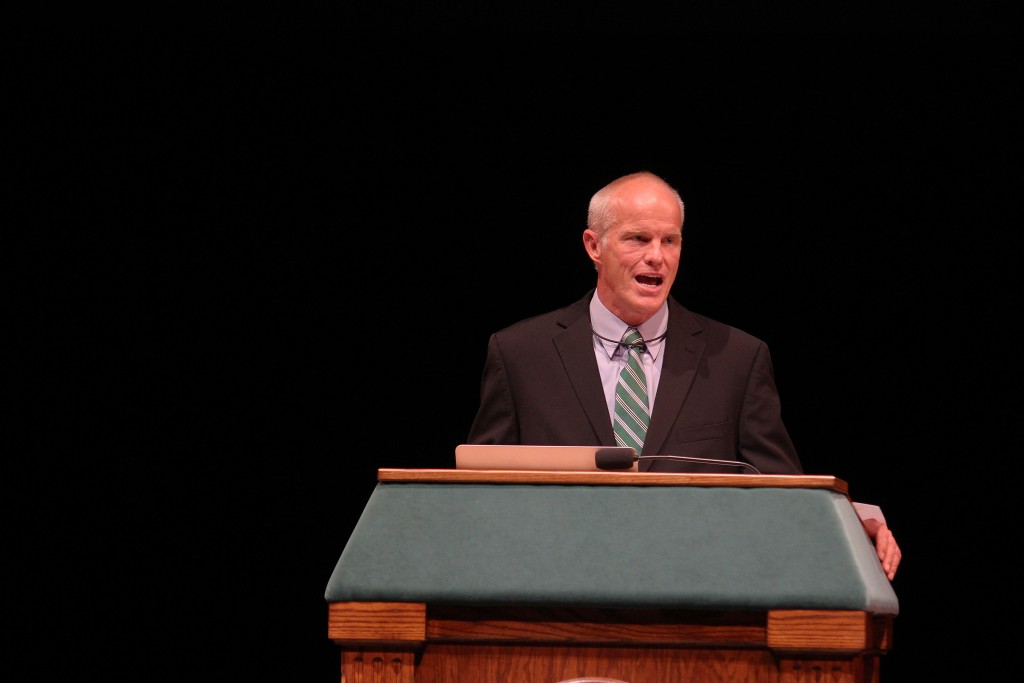
On Thursday afternoon in the Anderson Center, Binghamton University President Harvey Stenger delivered his biannual State of the University address.
With a heavy emphasis on the Road Map to Premier plan, Stenger covered topics ranging from the growing student population to initiatives that will help strengthen the Southern Tier.
BU’s Road Map plan has five main points: improving graduate research, enhancing education, fostering diversity, optimizing resources and enhancing the University’s economic, social and cultural impact.
According to Stenger the “20,000 by 2020” plan — an effort to raise enrollment to 20,000 students by the year 2020 — is on track. Enrollment has gone up by more than 2,000 since 2011, and the number of applications continues to rise as well.
“It’s a really important goal,” Stenger said. “It has to be done by enhancing our profile as a research institution that has strong graduate programs as well as naturally recognized undergraduate programs.”
Diversity has also increased on campus. According to Stenger, there has been a 36 percent increase in underrepresented minority undergraduate students, and a 58 percent increase in underrepresented minority graduate students.
Faculty hiring has also expanded at BU, with an emphasis on hiring professors whose expertise crosses disciplines.
“I think that that’s going to enhance the quality of the faculty that we choose, and how we support them once they come to the University,” Stenger said.
Stenger also discussed the Upstate Revitalization Initiative, which is set forth by New York State’s Regional Economic Development Council (REDC). The Southern Tier is competing for the five-year, $500 million grant which is intended to help rejuvenate the economy of upstate New York.
“The Upstate Revitalization Initiative will have a significant emphasis on the Southern Tier, specifically Binghamton and the Triple Cities area,” Stenger said.
Seven upstate regions are competing for the grants and three will be awarded the money. Stenger said that it is a great opportunity for the University, and he plans on attracting companies in the pharmaceutical business to the area.
“We are going to start a biopharmaceutical industry hub, and offer space to companies who would like to move here,” Stenger said. “We really see this as a future growth in jobs, but also in our reputation.”
The new School of Pharmacy and Pharmaceutical Sciences is still set to be completed by 2018, according to Stenger, and will help with the revitalization of BU’s surrounding area.
For those in attendance, the emphasis on the University’s relationship with the surrounding community was clear. Steve Knepp, the interim housing coordinator for Residential Life, said that it is important to improve the area in addition to initiatives taken on to improve the University.
“I love the direction the University is going in,” Knepp said. “I love how we’re able to not only make the University better, but also the entire community and the Tri-Cities area.”
Stenger said that across disciplines, BU is working hard to achieve the goals they have set.
“We’re sitting here, we’re watching, we’re waiting and we’re ready to work hard,” Stenger said. “I think you can see that across the entire campus.”


